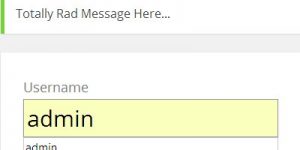WordPress SEO Comments and rel=nofollow article updated March 2014.
Google no longer honors the nofollow tag! Instead of protecting the PR/link benefit it used to conserve for non nofollow links, it now DELETES the PR/link benefit! Stupid move by Google as it again forces webmasters to look for alternatives to nofollow to protect PR/link benefit like using javascript when linking to sites we do not wish to promote!
My SEO advice is do not use rel=”nofollow” on any website if you care about search engine optimization.
To get around this WordPress SEO issue I created a SEO WordPress Theme that instead of using normal links to link to comment authors URLs it uses form button links (Google ignores them, no wasted PR/link benefit).
WordPress Comments and rel=nofollow
Link benefit or PageRank is very important to Google and to a lessor degree Yahoo and Bing search engine rankings, so adding rel=”nofollow” to a link will mean the recipient page will NOT gain an advantage in the major search engines.
Text links and PR are a major part of search engine optimization, without links (PR) a web site is highly unlikely to do well in Google for anything but the easiest long tail SERPs. This has led to many webmasters willingness to resort to dubious (unethical black hat SEO practices such as blog comment link spamming (I’ve done it in the distant past).
If you’ve owned a blog that allows comments and to a lessor degree pings/trackbacks for more than a week or two you’ll already know what comment SPAM is. If not webmaster add comments to blogs for a link to their own website(s), that in itself isn’t a problem, but the comments tend to not reflect the content on the blog page, usually comments like “great site” or just a bunch of porn, Viagra or phone sex text links! Comment SPAM started with individuals posting the comments manually, but now it’s mostly a set of scripts that scan the Internet for open comment pages to SPAM. This blog has had tens of thousands of SPAM comments, almost all caught by various WordPress plugins like Akismet, so comment SPAM is a major problem for bloggers worldwide!
WordPress Comment SPAM Problem
According to Akismet the vast majority of blog comments are SPAM, 92%!!!
My experience of owning blogs agrees with the above, most comments are indeed SPAM :-( So I fully understand why the WordPress developers have taken this step due to the plethora of blog comment SPAM currently plaguing the blogosphere, but it comes at a cost to WordPress users, real commenter’s no longer get a link back to their site and this is bad for blogging!
The good news is if you are a WordPress user there are tools (plugins) that almost stop all comment SPAM (especially automated comments which are the biggest problem). Like I said above this blog has seen almost 4,000 spammed comments-
Yet only a couple of manually spammed comments got through, so the tools I use work at filtering SPAM.
WordPress Comment SPAM Plugins
Akismet https://wordpress.org/plugins/akismet/ – Akismet checks your comments against the Akismet web service to see if they look like spam or not. You need a WordPress.com API key to use this service. You can review the spam it catches.
Stallion Responsive Theme package includes built in comment SPAM blocking plugins that include a comment spam honeypot that stops the comment from even being added to the database.
The ones that get through (not many) are handled by Akismet. Akismet filters the vast majority of SPAMMED comments, but doesn’t immediately delete them, giving you a chance to recover any comments that are not SPAM (it happens).
I’m that happy with the SPAM filtering that I’ve removed the rel=”nofollow” attribute from comments on this blog, it’s a built in feature to the Stallion Responsive theme. With the odd few that get through it’s a simple case of manually deleting them. Having the option to add links within comments you can add your own links and even allow your trusted commenter’s to benefit SEO wise from their comments.
Removing rel=”nofollow” from comments from a WordPress blog
Quite easy to remove rel=”nofollow” from a WordPress blog. Either install a WordPress dofollow plugin or add the following code to your themes functions.php file:
<?php
remove_filter('pre_comment_content', 'wp_rel_nofollow', 15);
?>The above is part of Stallion Responsive (and some other nofollow relevant code), so don’t add the code above if you are a Stallion theme user.
David Law




Akismet API
i would love to use Akismet but i still need to register to WP.com to get the Akismet API key
WordPress Comment SPAM
How can 92% of comments be spam? If this is the case, why do we even keep comments on our blogs? And i know the no follow is to fix things, but I believe it’s still used by google. Let’s try :-)
Moderator: This was picked up as SPAM, removed the link and let it through :))
SpamTask WordPress Plugin
You should add SpamTask to the list. I think it works best of all the anti-spam plugins.
How Does Google Use Nofollow?
So I’m looking at the dates on this post and the responses, being March 2011 is the “rel=nofollow” still legit? Meaning Google and the others don’t pay attention to it?
Yahoo site explorer and nofollow
i have still doubt about nofollow, i use to comment on many blogs when i like the post, and many of them are using nofollow for wordpress comments…
but when i explore my site in yahoo site explorer it shows all those inbound links,it may not give you page rank benefits,but still you have traffic benefits..
and now a days trust rank is more important than page rank.TrustRank is the degree to which Google trusts that your website will be valuable to visitors if presented as a search result…
Yahoo site explorer and nofollow
SEO Tip : Stop Using Nofollow
If I haven’t came to this page, I wouldn’t know that “nofollow” is useless now. Thanks a lot for the information.
WordPress SEO Nofollow Links SEO Ranking Value
There is nothing more important to a site ranking than backlinks, without links a site will go no where SEO wise.
Nofollow links pass no SEO benefit (they are SEO damaging to the page/site they are on), just trust me on this one I’ve tested it and at one point discovered an anomaly that the anchor text of a nofollow link was counted by Google on the page the link is on (not the case anymore, Google fixed it).
I had a working test of this (Search “SEOStenchbomb” in Google, but recently broke the public SEO test myself when I updated the Stallion SEO theme with code that automatically replaces nofollow links with javascript links :-) another private SEO test still shows the same results, so nofollow has no SEO ranking value and since it deletes link benefit (Matt Cutts, the head of Google’s webspam team confirmed this on his blog) is bad for the site the link is on.
That’s not to say nofollow links to a site have no value at all, there’s click through traffic, but it won’t increase search engine rankings and it damages the site the link is on.
PR per se does not dictate rankings, but the number and quality of backlinks which can be roughly (very roughly) measured by the PR of a page is very important. Remember Google says they use over 200 ranking factors, PR/link benefit is just one Google ranking factor.
Looking at the PR of a page or domain alone isn’t very helpful, are the links that generated the PR aged, a link doesn’t pass full benefit for about a year, is the domain in a ‘trusted’ state which appears to be based a lot on the quality and PR of aged backlinks and if there’s anything wrong with the site (Black Hat SEO techniques). Are the backlinks spread over many domains or a few, are those domains ‘trusted’ sources. It’s not that hard to get a page to PR4 which can be enough to generate decent SERPs, but doesn’t mean the link benefit is working because of where the link benefit came from and how aged the links are.
In comparison the onpage SEO is easy and straightforward, but without those offsite factors you might as well not bother.
David Law
WordPress SEO Nofollow Links SEO Ranking Value